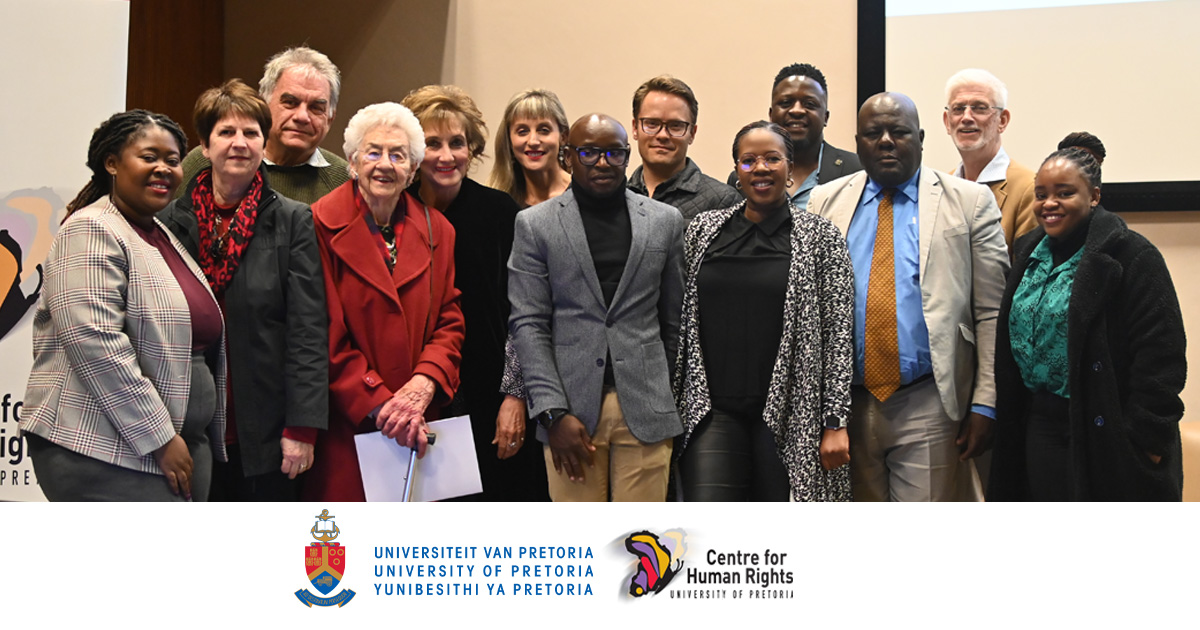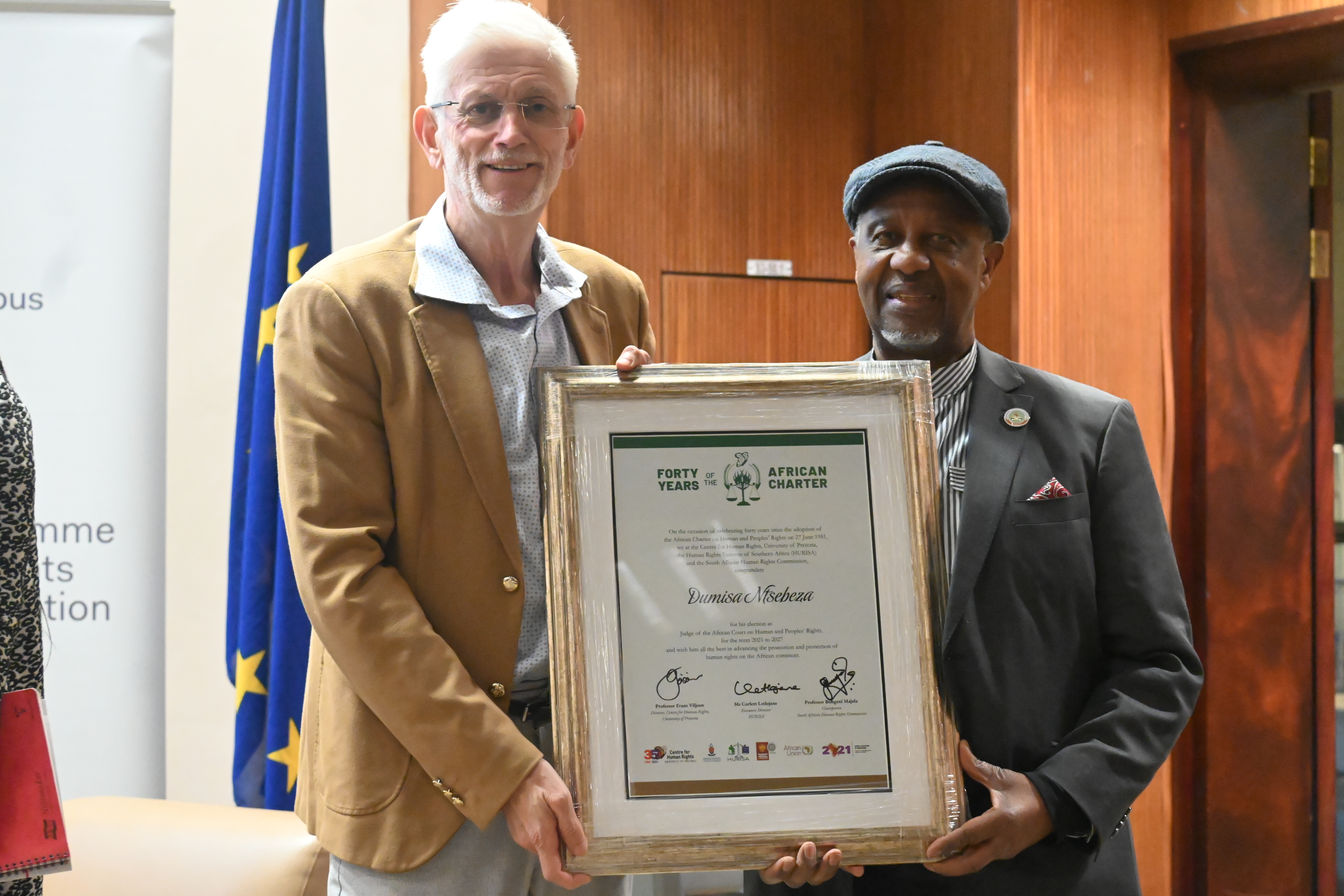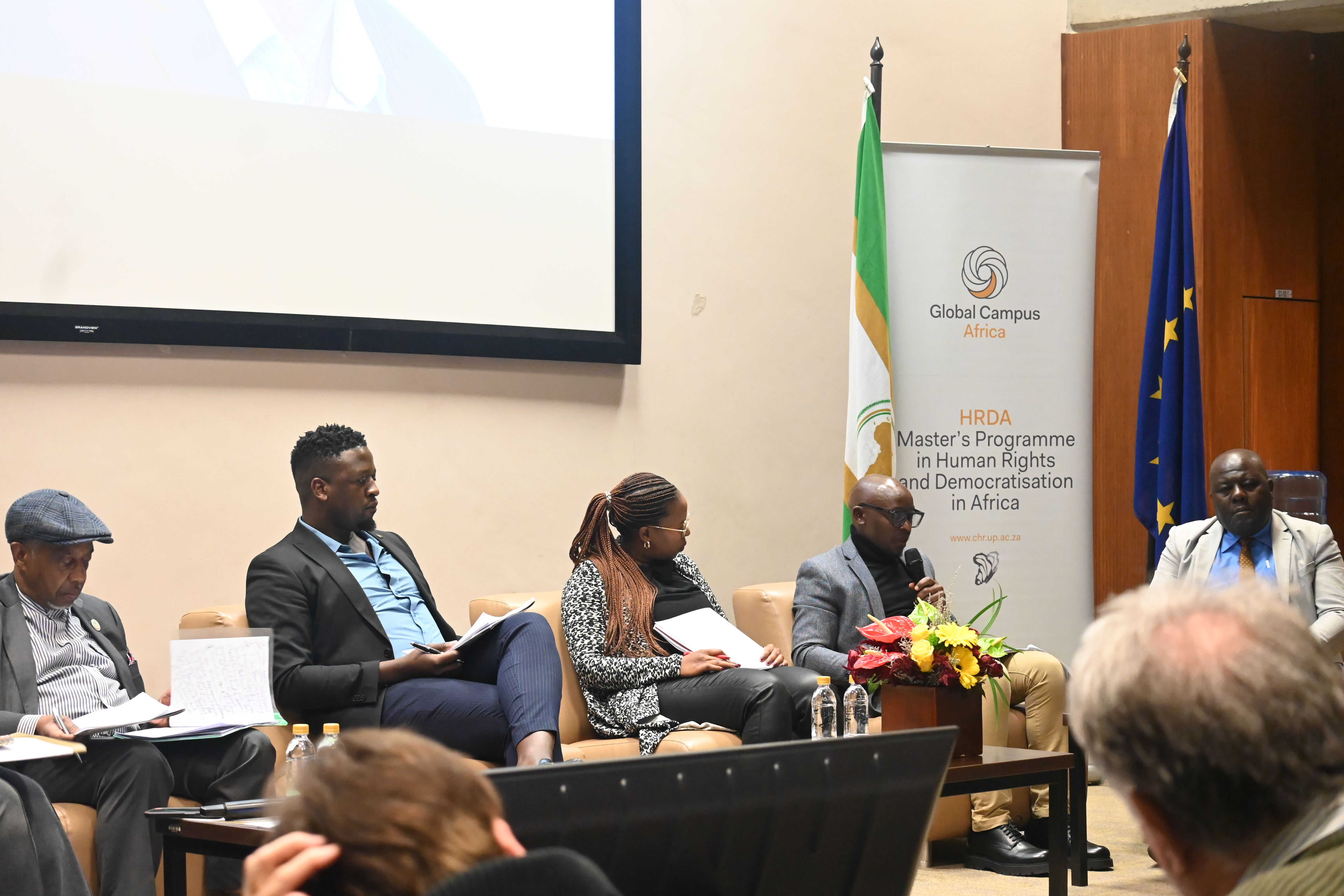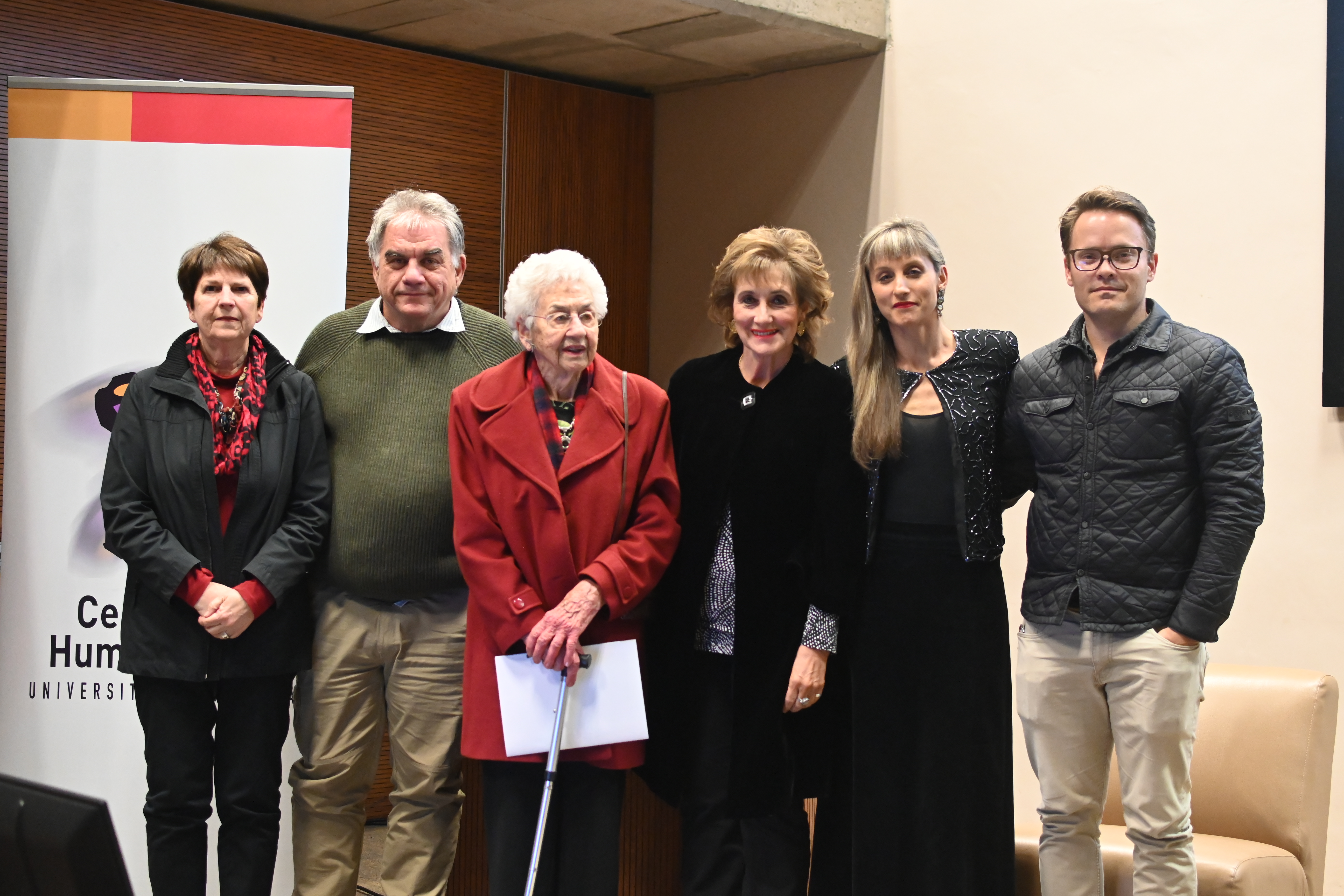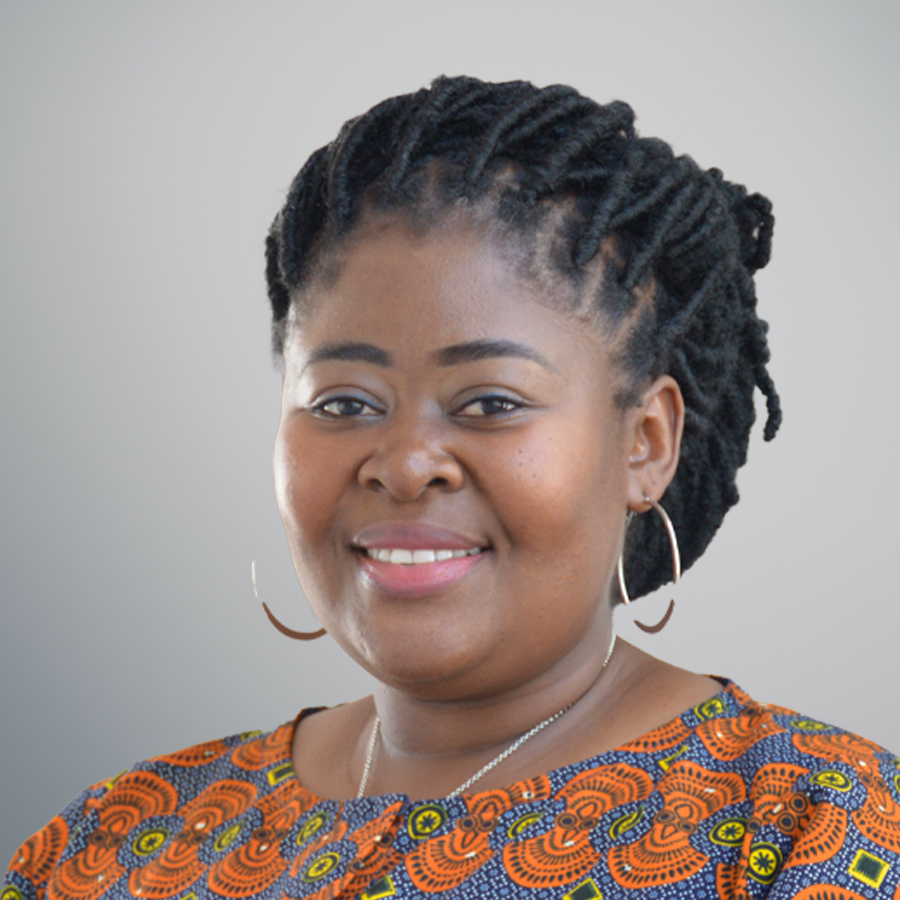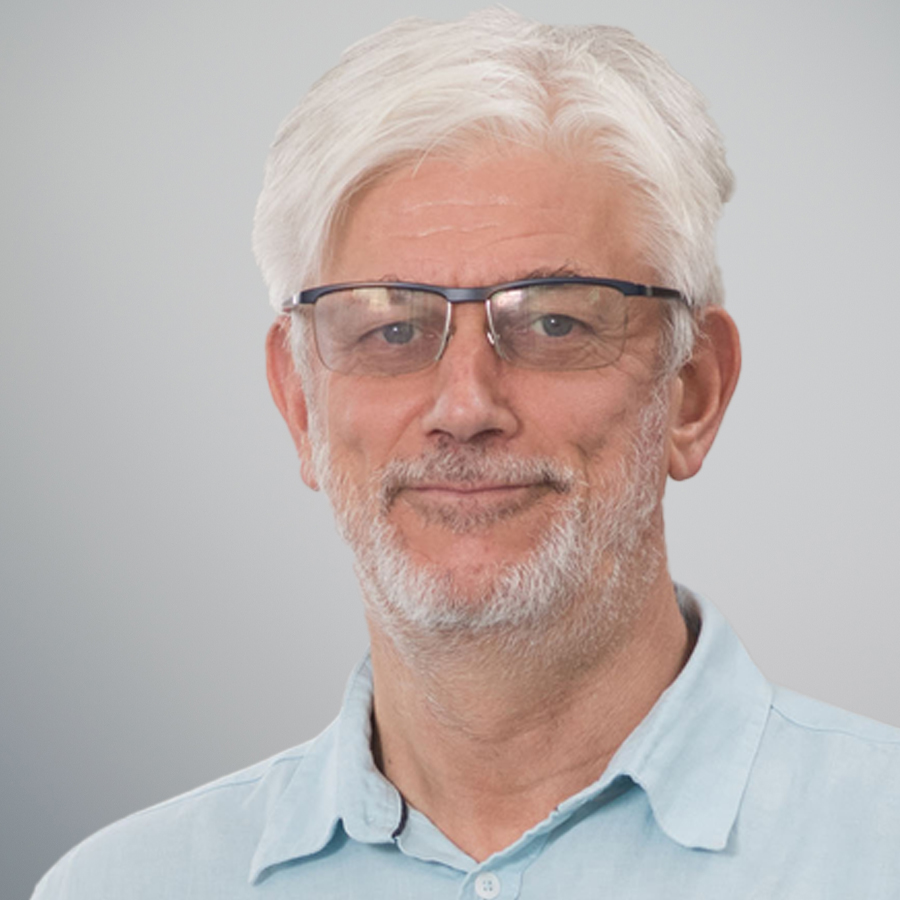The Centre for Human Rights, Faculty of Law, University of Pretoria (Centre) held the second Christof Heyns Memorial Lecture on 4 July 2024. Professor Christoffel Hendrik (Christof) Heyns, who passed away suddenly in March 2021, was an internationally renowned human rights lawyer, legal educator and activist. He was one of the founders and previous director of the Centre. He also initiated the Master’s programme in Human Rights and Democratisation in Africa (HRDA), under whose auspices the event was organized.
This Lecture, being the second in this annual series, is dedicated to discussing pressing human rights issues on the continent. This year, the Lecture addressed a pertinent topic that has been the centre of debate across the region for decades – the death penalty. The theme for this lecture was ‘Towards the complete abolition of the death penalty in Africa’.
While there has been much progress towards eliminating the death penalty, and pausing its application in selected jurisdictions, stagnation and backsliding pose a serious threat to the realisation of human rights, particularly the right to life. It is therefore important to take stock of the legal and policy developments in the discourse on the death penalty in Africa.
Justice Ntsebeza, only the second South African to serve as Judge of the African Court on Human and Peoples’ Rights, delivered the keynote address. He expressed the view that the death penalty in many ways is a relic of the colonial era, which continues to exist in many African countries even after those who introduced it by law have long since erased it from their own laws. He also noted that, ironically, some African countries have even extended the application of the death penalty beyond what was stipulated during the colonial era. He remarked in this regard that ‘while the colonial state did a lot to entrench the death penalty in Africa, the current landscape is as much the result of decisions or indecision by African countries themselves’. He noted the normative human rights framework on the death penalty, highlighting the rights to life and liberty of the person, and prohibition of arbitrary deprivation of life in articles 3 and 6 of the International Covenant on Civil and Political Rights, article 3 of the Universal Declaration, and article 4 of the African Charter on Human and People’s Rights. He further drew attention to the prohibition of imposition of the death penalty on children below the age of 18 under the UN Children’s Charter.
Judge Ntsebeza went through selected cases decided by the African Court to illustrate the development of African Court’s jurisprudence on the death penalty. He considered the Ally Rajabu v Tanzania case in which the African Court concluded that ‘the mandatory nature of the imposition of the death penalty in Tanzania constitutes an arbitrary deprivation of the right to life contrary to article 4 of the Charter.’ The noted that the Court held that, because the mandatory imposition of the death penalty excludes the consideration of personal and mitigating circumstances, it deprives the trial court of any discretion, and thus renders the imposition of the death penalty under such circumstances as ‘arbitrary’. Further, in relation to the method used to impose the death penalty, in this instance in Tanzania, Justice Ntsebeza noted that ‘the Court observed that the methods used to implement the death penalty have the potential of amounting to torture as well as cruel inhumane and degrading treatment in respect of hanging. The Court concluded that hanging is inherently degrading’ and violates the right to dignity. He criticized the African Court for not finding that the death penalty in its entirety violates the African Charter. In a number of dissenting judgments, he held that the death penalty should be abolished for all crimes and under all circumstances. His full keynote address is available [here].
This eye-opening address was followed by a panel discussion, moderated by Dr Michelle Maziwisa, the HRDA Programme Manager at the Centre, in which various key stakeholders shared perspectives. Mr Edwin Mushoriwa, Member of Parliament of Dzivarasekwa (Zimbabwe, Harare) presented the ‘current discourse towards abolition of the death penalty in Zimbabwe’. He explained the practical steps taken through which he brought a motion to Parliament as a Private Members Bill. He advanced the view that the time was ripe in Zimbabwe to consider the Death Penalty Abolition Bill. Zimbabwe has exercised a moratorium on the death penalty for several years, which has meant that no executions have been effected on persons on death row. There was no strong opposition to the introduction of this Bill by the ruling party, despite the Bill having been introduced by a member of the opposition party. He indicated that community consultations have been held, and that a majority of the Zimbabwean people approve of abolition.
Mr Letsweletse Martin Dingake provided a civil society perspective, reflecting on the ‘challenges and push back against the death penalty in Botswana’. He traced the development of the death penalty legislation in Botswana and identified some of the criminal offences to which the death penalty is applicable in Botswana, including treason, piracy, instigating invasion and murder. He discussed some cases to illustrate the constitutional challenges of Botswana’s position on the death penalty, such as in State v Masoko, where the Court of Appeal found that the blanket approach to sentencing for murder, which did not allow for the consideration of extenuating circumstances, was arbitrary and that section 203 of the Botswana Penal Code was unconstitutional.
Ms Khanyo Farisé, the Deputy Regional Director (Research) at Amnesty International, provided ‘comparative perspectives from the region’. She noted that there is a 66 per cent increase in the use of death penalty in the region, and that recorded executions more than tripled. Nonetheless, Ghana, Kenya, Liberia and Zimbabwe have all taken positive steps towards elimination of the death penalty. She concluded by noting: ‘These developments show that, when a human rights agenda is put at the centre of government plans, it is possible to rethink the response to crime and shift the investment of resources from retribution to prevention of crime and rehabilitation of offenders.’
Dr Ntandokayise Ndlovu, an expert member of the African Union Working Group on the Death Penalty, Extrajudicial, Summary or Arbitrary Killings and Enforced Disappearances in Africa, and Senior Lecturer, at Nelson R Mandela School of Law, shared some insights on the African Union’s efforts towards protection of the right to life, integrity and security of the person, under articles 4 and 5 of the African Charter, and specific measures in terms of the Maputo Protocol on the Rights of Women in Africa and the African Charter on the Rights and Welfare of the Child, to prohibit the imposition of the death penalty on pregnant women and on children, respectively. He enlightened the audience on workings of the Working Group, which was established in 2005 to look into the death penalty, with its mandate subsequently being expanded in 2012 and 2018 to tackle extrajudicial killings and enforced disappearances. He also expanded on efforts within the African Commission towards the elaboration and adoption of a draft Protocol to the African Charter on the Abolition of the Death Penalty.
These submissions were followed by a discussion in which the audience posed questions to the panel and made comments, which created a space for critical engagement on the way forward for Africa.
The event was supported by the European Union through the Global Campus of Human Rights, and partnership of the Global Campus, of which the Centre is the regional hub for the Africa region.
We are also grateful to Christof Heyns’s family for their continued support as we remember the kind and engaging person he was and as we continue to find inspiration in his lifelong efforts towards the advancement of human rights in Africa.
Left to Right: Mrs. Nita Heyns; Dr Dirk Heyns (brother of the late Christof Heyns); Mrs. Renee Heyns (mother of the late Christof Heyns); Mrs. Fearika Heyns (wife of the late Christof Heyns); Ms. Willemien Rust (née Heyns) (daughter of the late Christof Heyns)
The video recording of the Memorial Lecture is available here:
For more information, please contact:
Tel: +27 (0) 12 420 6703
michelle.maziwisa@up.ac.za
Centre for Human Rights
Tel: +27 (0) 12 420 3228
frans.viljoen@up.ac.za

